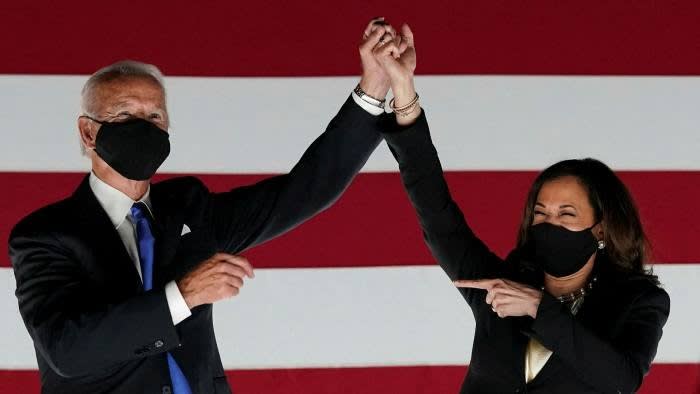WE WERE GOING TO CERTIFY EDWARD LUCE AS A RAMBLING DUNDERHEAD.. BUT THEN CAME THIS PIECE TO RESCUE HIM...
Joe Biden should beware liberal identity politics

There is a fine line between championing diversity and embracing identity politics. In practice, it should be a bright red one. But, as Joe Biden, the US president-elect, is discovering, it is hard to please all your constituents all of the time.
In the past three weeks, Mr Biden has made good on his promise to unveil “the most diverse cabinet in history” — with several big appointments to come. Yet the pressure on him to be even more inclusive has only grown louder.
The danger is that Mr Biden will be lured into an unwinnable game of tokenism. He is almost destined to fall out at some point with the progressive wing of the Democratic party. With the Senate likely to be controlled by the Republicans, Mr Biden’s only chance of passing significant bills will be to strike deals with the few moderate Republicans and hope that more leftwing senators, such as Bernie Sanders and Elizabeth Warren, will see no option but to vote Yes.
Whatever emerges from such bipartisan sausage-making will look like thin gruel to the left. Mr Biden’s other avenue to making his mark will be to do as much as he can by executive order. Here, too, the results are unlikely to satisfy his base. The US Supreme Court has moved right since Barack Obama’s presidency and today’s 6-3 conservative majority court is likely to look askance at executive moves to regulate carbon emissions and bolster labour unions.
Faced with a system that appears to block change at every juncture, progressives’ frustration will only grow. The pressure on Mr Biden to drift into identity issues to placate the left will be hard to resist. That could include extending affirmative action, backing campus speech restrictions and reinstating Obama-era rules on gender identity in schools. But it will come with price tags. The most obvious is that it is not good politics. Mr Biden got 7m more votes than Donald Trump in last month’s election. But most of those who switched to Mr Biden for president appear to have reverted to Republicans for the down-ballot races. Democrats lost 10 seats in the House of Representatives and failed to regain a single state legislature. They would be lucky to win both run-off Georgia elections next month to recapture the Senate.
In other words, Mr Biden won on November 3, but Democrats lost, and the party is bitterly debating whether to blame the left or the centre. It is instructive that in California, where no ethnic group has a majority, voters went heavily for Mr Biden but emphatically rejected a measure to allow the state’s public bodies to engage in affirmative action. Yet in Florida, which Mr Trump won, voters strongly endorsed a measure to raise the minimum wage to $15. Together these results should tell the Democrats to focus on the economic woes that Americans have in common, rather than moral grandstanding. There should be no trade-off between promoting diversity and confronting economic fairness.
US presidential election 2020: You tell us

How do you feel now the election is over? Are you happy with the winner? Do you feel the election process was fair? How do you see the outlook for America? Do you feel positive about the incoming president or uncertain? Share your thoughts with us.
Democrats should also pay heed to the remarkably high share of minority votes that Mr Trump received. He took almost a third of the Hispanic and Asian American vote — and just under a fifth of African American males. After four years of unapologetic racism, Mr Trump’s share of the non-white vote went up. Something is not working for the Democrats.
Clearly many non-white voters want more from the party than simply being anti-racist. As one prominent African American Democrat told me: “People living on the South Side of Chicago are nearly as cynical about Democrats as the white working class.”
That brings up identity liberalism’s second big cost. About 74m Americans voted for Mr Trump in the highest turnout US election since 1900. To be sure, Mr Biden won with 81m but he failed to make large inroads into the white non-college educated vote. This is in spite of the fact that his blue collar credentials were far stronger than Hillary Clinton’s. Mr Trump made overt racial appeals to that demographic and tried to make suburban voters believe that Mr Biden would socially engineer multiracial neighbourhoods. The second effort clearly failed as suburban voters shifted to Mr Biden quite sharply.
But what about America’s blue-collar voters? Perhaps Democrats find it easier to write them off as racist than to do anything about their poverty. But Mr Biden should not need to make the choice. The challenge for the Democratic party is whether it can win back white working class voters faster than Republicans win over non-white voters. At the moment that is an open question. The fate of Mr Biden’s presidency — and his party — may rest on the answer.
No comments:
Post a Comment